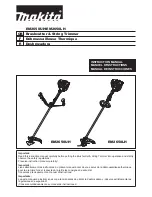
G
uar
di
an
F
al
l P
ro
te
ct
io
n
63
05
S
. 2
31
st
St
.,
Ken
t,
W
A
9
80
32
6
Safety Information
Failure to understand and comply with safety regulations may result in
serious injury or death. Regulations included herein are not all-inclusive,
are for reference only, and are not intended to replace a Competent
Person’s judgment or knowledge of federal or state standards.
!
WARNING
Do not alter equipment. Do not misuse equipment.
Workplace conditions, including, but not limited to, flame, corrosive chemicals, electrical shock, sharp objects,
machinery, abrasive substances, weather conditions, and uneven surfaces, must be assessed by a Competent
Person before fall protection equipment is selected.
The analysis of the workplace must anticipate where workers will be performing their duties, the routes they
will take to reach their work, and the potential and existing fall hazards they may be exposed to. Fall
protection equipment must be chosen by a Competent Person. Selections must account for all potential
hazardous workplace conditions. All fall protection equipment should be purchased new and in an unused
condition.
Fall protection systems must be selected and installed under the supervision of a Competent Person, and used
in a compliant manner. Fall protection systems must be designed in a manner compliant with all federal, state,
and safety regulations. Forces applied to anchors must be calculated by a Competent Person.
Unless explicitly stated otherwise, the maximum allowable free fall distance for lanyards must not exceed 6’.
No free fall allowed for non-LE SRLs. Class A SRLs must arrest falls within 24”; Class B SRLs must arrest falls
within 54”.
Harnesses and connectors selected must be compliant with manufacturer’s instructions, and must be of
compatible size and configuration. Snap hooks, carabiners, and other connectors must be selected and applied
in a compatible fashion. All risk of disengagement must be eliminated. All snap hooks and carabiners must be
self-locking and self-closing, and must never be connected to each other.
A pre-planned rescue procedure in the case of a fall is required. The rescue plan must be project-specific. The
rescue plan must allow for employees to rescue themselves, or provide an alternative means for their prompt
rescue. Store rescue equipment in an easily accessible and clearly marked area.
Training of Authorized Persons to correctly erect, disassemble, inspect, maintain, store, and use equipment
must be provided by a Competent Person. Training must include the ability to recognize fall hazards, minimize
the likelihood of fall hazards, and the correct use of personal fall arrest systems.
NEVER use fall protection equipment of any kind to hang, lift, support, or hoist tools or equipment, unless
explicitly certified for such use.
Equipment subjected to forces of fall arrest must immediately be removed from use.
Age, fitness, and health conditions can seriously affect the worker should a fall occur. Consult a doctor if there
is any reason to doubt a user’s ability to withstand and safely absorb fall arrest forces or perform set-up of
equipment. Pregnant women and minors must not use this equipment.
Physical harm may still occur even if fall safety equipment functions correctly. Sustained post-fall suspension
may result in serious injury or death. Use trauma relief straps to reduce the effects of suspension trauma.


























